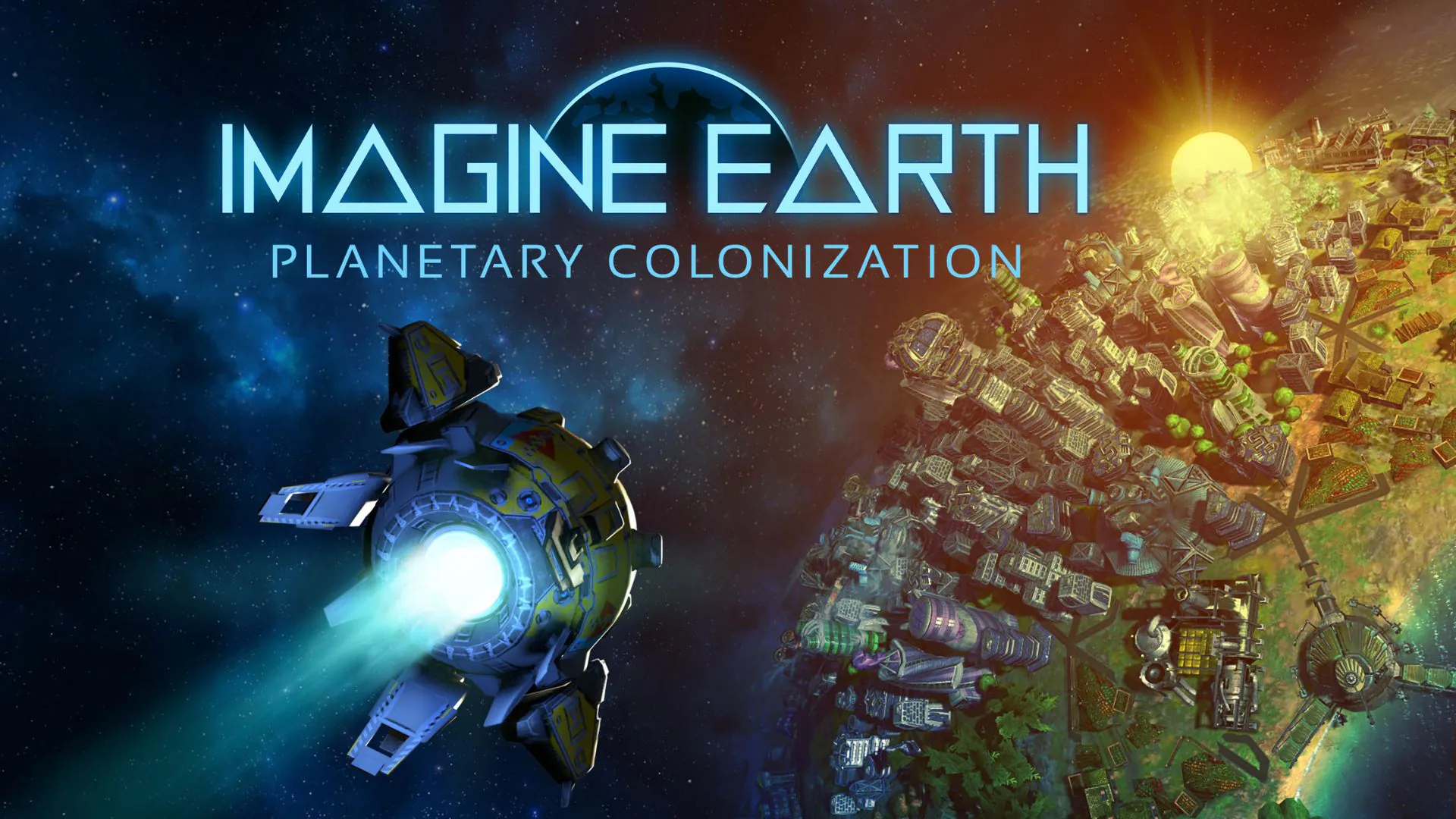Interviews
Martin Wahnschaffe, Head of Development and Co-CEO & Jens Isensee, Head of Art and Co-CEO at Serious Bros. — Interview Series

After a solid fifteen years in development, indie studio Serious Bros. has finally lifted the veil on its newest sci-fi city-building game—a global-scale colonization sim called Imagine Earth. To learn a little more about it, as well as pick up a few useful tips directly from the horse’s mouth, so to speak, we caught up with the team behind the game.
Thanks for taking the time to speak with us! Could you kindly introduce yourself to our readers? Who are you, and what position do you currently hold at Serious Bros?
Martin: Hi, I'm Martin. Head of Development at our two-person indie studio. I was responsible for bringing everything together by implementing the game mechanics that Jens and I designed.
Jens: Hello. I created 3D models, interface design, the early generation of game characters, and basically everything colorful in Imagine Earth.
Tell us a bit about your studio, Serious Bros. How did it all come together, and what inspired you to create video games?
Martin: I used to be an avid video game player. So I enthusiastically embraced the opportunity when we teamed up as students to launch a game project about the climate crisis as part of a Microsoft competition. For me, it was an opportunity to make a building strategy game myself and to create a world in which I virtually set the rules. It then developed in such a way that we were able to expand and develop our world simulator in Early Access on Steam over the following years.
Let’s talk about your latest sci-fi city-building game, Imagine Earth. What is it, and what sorts of gameplay elements can players expect to experience?
Martin: At its core, Imagine Earth is of course a city-builder simulation game. Players land on a previously uninhabited or perhaps already partially developed planet and build their first colony. This includes the supply of basic resources such as energy, food and goods and the expansion of the colony with enough living space for the inhabitants.
It is important to make the best use of the available space, resources, fertility, and other factors for your own colony and to decide which buildings best meet the requirements. In addition, it’s important to reach and mine the available resources on the planet in order to trade them with other factions or interplanetary traders. Then there is research, rare resources and actions that can be used to terraform the planet, and finally the interaction with the other factions – always in a non-military way, but with sabotage, hacking, economic takeovers, and similar mechanics.
All of this results in a complex interplay that is not immediately forced upon the players, but is gradually integrated into the game.
Believe it or not..
After over 15 years our Sci-Fi Builder Climate Crisis Strategy Simulator Imagine Earth finally makes landfall on Switch, PS 4 / 5, and macOS (Steam) on May 9!
You can wishlist it on
Switch https://t.co/nSZsiUIx5E &
Playstation https://t.co/7wJeN4QqCO! pic.twitter.com/dzzaCOaye3— Serious Bros. (@SeriousBrothers) April 20, 2024
And what is it that sets Imagine Earth apart from its peers? Global-scale city building aside, would you say that there’s a hidden ingredient that truly defines the game?
Martin: That's simple. Every planet in the game is a closed ecosystem within which all decisions made by the player and the other factions have long-term effects. For example, you can rely on fossil fuels, as they are often an easily accessible source of energy. However, if you and perhaps the other factions overdo it, you may end up with global warming. With all the side effects such as rising sea levels and a much more unstable weather and climate situation.
Jens: I’d put it that bluntly: Imagine Earth starts as a relaxed and harmonic city builder that unfolds cooperative diplomacy and trade strategy, as well as resource management and crafting elements. However, based on your development decisions, it can also turn into an environmental survival thriller.
Would you say that Imagine Earth is a relatively easy game to pick up and play, or would you say that it’s better suited to someone with a little more experience in the city-building genre?
Martin: Yes, although Imagine Earth has many game mechanics and elements, they do not impose themselves permanently but only become relevant depending on the game situation or simply offer alternative approaches to achieving a goal.
We also offer an extensive campaign, in which additional game mechanics become relevant bit by bit and are thus comprehensively introduced to the players.
Do you have any useful tips for newcomers to the world of Imagine Earth? Are there any major dos or don’ts that we should know about?
Martin: Yes, it is highly advisable to consider the factors that influence the efficiency of buildings, as this makes a big difference. The same building can produce about 50% more for the same cost.
In addition, you should focus on mining resources at the start of the game to quickly obtain additional capital for building up the colony. It is not advisable to pick unnecessary fights with the other factions. This simply ties up a lot of resources and attention and is, therefore, a clear disadvantage.
What’s next for Serious Bros, if you don’t mind me asking? Do you have any other projects on standby? If so, would you kindly share some details about it/them?
Jens: The future will reveal itself, but I can say for sure that we won’t be doing such an idealistic 15-year development project again without super strong incentives and funding! But it’s also not necessary to look that far into the future, as we have two DLCs almost ready for the game, willing to come out now as soon as Imagine Earth is out on all platforms.
Any final words for our readers?
Martin: I would say check out a let’s play on YouTube or Twitch, and if it’s up your alley, pick your favorite platform and get the game!
Jens: In Imagine Earth we wanted to make the most pressing issue of our era – the climate crisis – playable as a motivating simulation and challenging strategy game. Players are entrusted with the fate of a global civilization and the conservation of a planetary ecosystem.
The problem of global climate change, often perceived as too abstract and unimaginable by individuals, becomes tangible and manageable in the way game grants great freedom to discover an individual path of transformation towards a thriving civilization and to establish a balance between growth and sustainability. We encourage you to join our Discord and please let us know how your experience with the game was!
Thanks for taking the time to speak with us!
For more information on Serious Bros’ latest city-building project, be sure to check in with the team over on their official social handle here.











